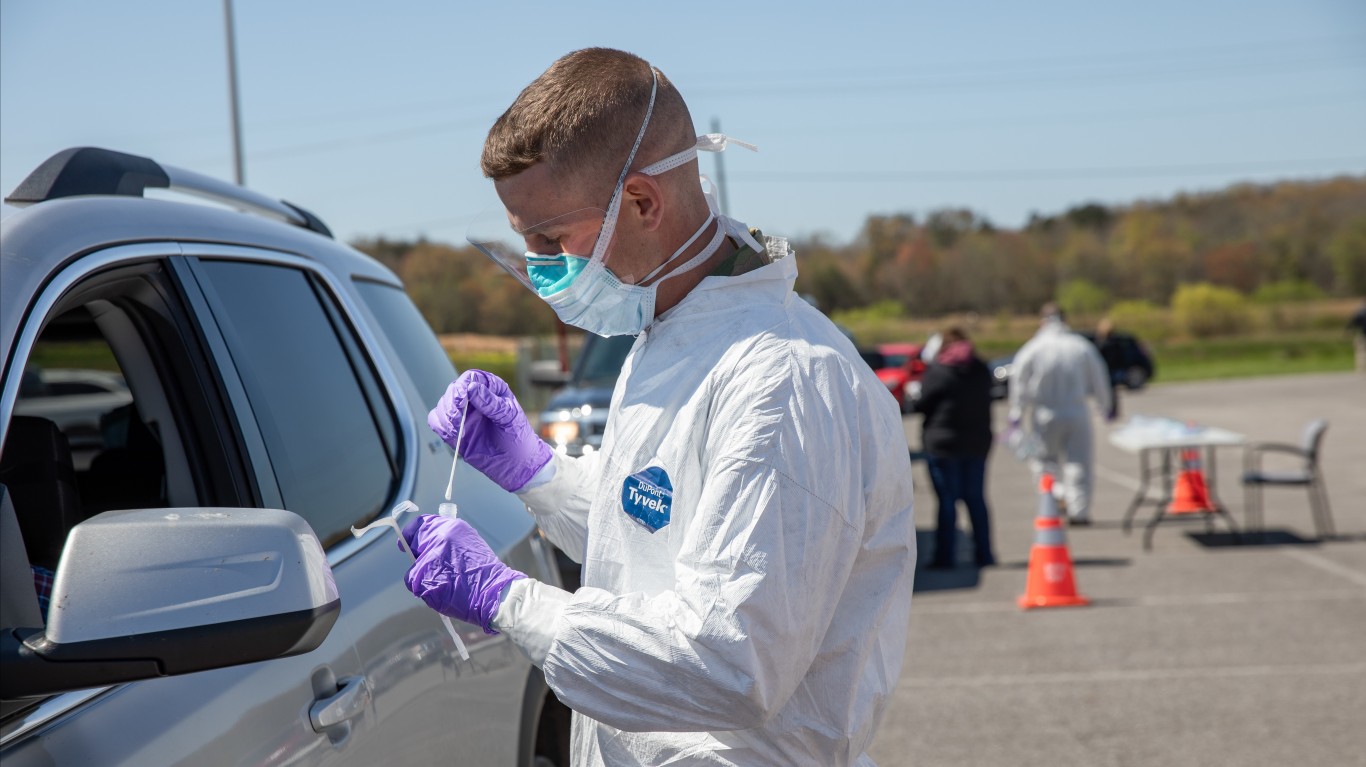Health and Healthcare
Stock Futures Surge as Gilead's Remdesivir Could Be COVID-19 Top Treatment Candidate

Published:
Last Updated:

While the COVID-19 pandemic wrecked the stock market and the economy, the recent rally in the stock market has been at a time when the economic news is only getting worse and as coronavirus news seems to be getting a bit less negative than in prior weeks. There may not be a cure yet, and there is no FDA-approved treatment, but Gilead Sciences, Inc. (NASDAQ: GILD) has been one of the companies with the hope of a treatment. Now Gilead’s shares were surging after a report showing early data suggests that coronavirus patients are responding to its remdesivir.
The news is positive, and any good news around a treatment for COVID-19 is obviously going to be good for the market as a whole. Stock futures were surging on Thursday evening after the news.
That said, this is not the first time that that has been good news around remdesivir as a COVID-19 treatment. The Daily Mail in the United Kingdom reported positive study news but also countered it with cautious study news out of China that had been out earlier.
Patients all around the world have been hoping and waiting for one of the top drug companies, or even a smaller drug company, to report that they either had a cure or a vaccine. Even news that a drug would help buffer coronavirus symptoms, even if it was just in the patients with the worst symptoms, would be good news at this time. The report has equity futures trading higher in the after-hours trading session.
Gilead has not yet made a formal announcement. According to STAT News:
A Chicago hospital treating severe Covid-19 patients with Gilead Sciences’ antiviral medicine remdesivir in a closely watched clinical trial is seeing rapid recoveries in fever and respiratory symptoms, with nearly all patients discharged in less than a week, STAT has learned.
As for remdesivir as a treatment, Gilead already has other studies ongoing as a potential COVID-19 treatment. The company had previously registered it as an orphan drug status with the FDA, and that could have potentially allowed for many future tax breaks and low/no competition for such sales if approved. The company quickly withdrew that orphan drug request after criticism that it was looking to profit off of the COVID-19 pandemic. Gilead had also faced some criticism for its pricing of hepatitis-C drugs in recent years.
One issue which may work against Gilead and remdesivir is that the drug doesn’t exactly spontaneously appear overnight by mixing a few compounds together to send out the next day. Gilead has been working to shorten the manufacturing timeline through process improvements. When it said the typical timeline for manufacturing a drug like remdesivir at scale would be a period of 9 months to 12 months, it reduced the time down to 6 months to 8 months. The company was also working on optimizing its chemical synthesis processes to accelerate product deliveries and volumes more rapidly. All that said, even if remdesivir is the best drug of its sort it will take a while to get it out if it is needed in mass.
Gilead has already been ramping up production of remdesivir, and data released by the company earlier this month indicated that had targeted 1.5 million individual dosages of the IV-drug that could treat more than 140,000 patients. The company assumes a 10-day regimen, and when it announced that it had more than 30,000 patient courses of remdesivir on hand it also issued the following goals:
A Gilead update from April 10 said:
Remdesivir is an investigational nucleotide analog with broad-spectrum antiviral activity both in vitro and in vivo in animal models against multiple emerging viral pathogens, including Ebola, Marburg, MERS and SARS. In vitro testing conducted by Gilead has demonstrated that remdesivir is active against the virus that causes COVID-19. The safety and efficacy of remdesivir to treat COVID-19 are being evaluated in multiple ongoing Phase 2 and 3 clinical trials. Initial clinical trial data are expected in mid-April.
Shares of Gilead had closed up over 2.5% at $76.54 on Thursday, but the additional results had Gilead shares trading up over 15% at $88.30 in the after-hours trading session on Thursday. Gilead’s prior 52-week high was $85.97, but its 52-week low is down at $60.89.
This and the news from Boeing made for a major gain in the futures after Thursday’s close. Dow futures were up 775 points (3.3%) and the S&P 500 futures were up about 87 points (3.1%) on Thursday evening.
If you’re one of the over 4 Million Americans set to retire this year, you may want to pay attention.
Finding a financial advisor who puts your interest first can be the difference between a rich retirement and barely getting by, and today it’s easier than ever. SmartAsset’s free tool matches you with up to three fiduciary financial advisors that serve your area in minutes. Each advisor has been carefully vetted, and must act in your best interests. Start your search now.
Don’t waste another minute; get started right here and help your retirement dreams become a retirement reality.
Thank you for reading! Have some feedback for us?
Contact the 24/7 Wall St. editorial team.